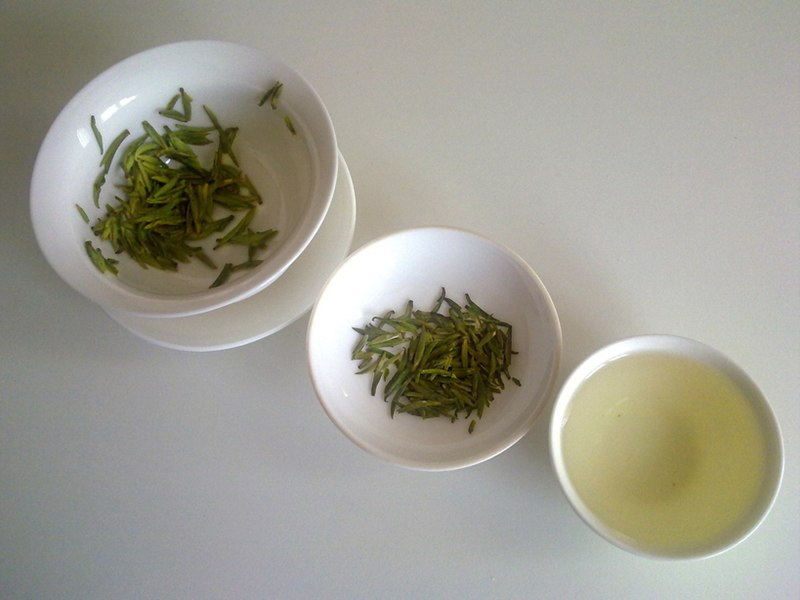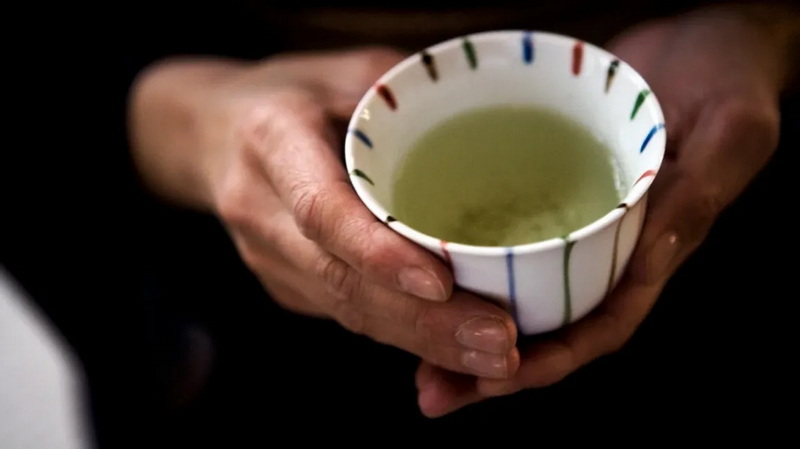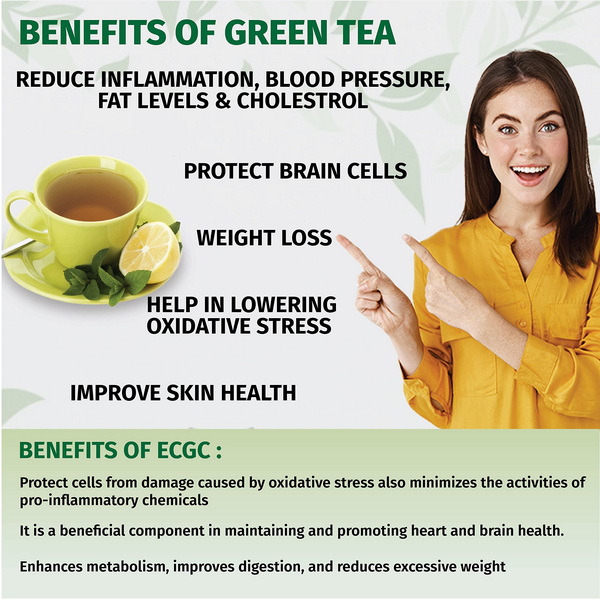Content Menu
● Understanding Green Tea and Green Tea Extract
● Health Benefits of Green Tea and Its Extract
>> Additional Benefits
● Can You Take Them Together?
● Recommended Guidelines for Use
● Potential Side Effects
● How to Incorporate Green Tea into Your Diet
● Conclusion
● FAQs
>> 1. Is it safe to take green tea extract every day?
>> 2. Can I drink coffee while taking green tea extract?
>> 3. What are the signs of liver toxicity from green tea extract?
>> 4. How much EGCG is in a typical serving of green tea extract?
>> 5. Can I take green tea extract on an empty stomach?
● Citations:
Green tea has long been celebrated for its health benefits, and with the rise of green tea extract supplements, many people wonder if they can safely consume both forms simultaneously. This article explores the benefits, potential risks, and guidelines for using green tea extract alongside drinking green tea.

Understanding Green Tea and Green Tea Extract
What is Green Tea?
Green tea is made from the leaves of the *Camellia sinensis* plant. It is rich in antioxidants, particularly catechins like epigallocatechin gallate (EGCG), which are believed to contribute to various health benefits, including improved heart health, weight management, and enhanced cognitive function.
What is Green Tea Extract?
Green tea extract is a concentrated form of green tea that contains higher levels of catechins and other beneficial compounds. It is often available in capsule or powder form and is marketed for its potential health benefits, including weight loss support and antioxidant properties.
Health Benefits of Green Tea and Its Extract
Both green tea and its extract offer numerous health benefits:
- Antioxidant Properties: Both forms are rich in antioxidants that combat oxidative stress and inflammation.
- Weight Management: Studies suggest that green tea can enhance fat oxidation and improve metabolic rate, while green tea extract may provide a more concentrated dose of these beneficial compounds.
- Heart Health: Regular consumption of green tea has been linked to reduced risks of cardiovascular diseases due to its ability to lower cholesterol levels and improve blood pressure.
- Cognitive Function: The combination of caffeine and L-theanine in green tea may enhance brain function, promoting alertness without the jitters often associated with coffee.
- Skin Health: Both forms have been shown to improve skin conditions due to their anti-inflammatory properties.
Additional Benefits
In addition to the aforementioned benefits, research has highlighted several other advantages associated with both green tea and its extract:
- Cancer Prevention: Some studies suggest that the polyphenols in green tea may reduce the risk of certain types of cancer by inhibiting tumor growth. EGCG has been particularly noted for its potential role in cancer chemoprevention[1][2].
- Blood Sugar Regulation: Green tea may help regulate blood sugar levels, making it beneficial for those with diabetes or at risk for developing the condition[5][8].
- Liver Health: Both green tea and its extract have been associated with improved liver function by reducing inflammation and oxidative stress. This is particularly relevant for individuals with non-alcoholic fatty liver disease (NAFLD)[1][3].
- Dental Health: Surprisingly, green tea can help prevent tooth decay due to its natural fluoride content[5].

Can You Take Them Together?
Yes, you can take green tea extract while drinking green tea. However, there are several considerations to keep in mind:
- Caffeine Content: Both green tea and its extract contain caffeine. While moderate caffeine intake can be beneficial, excessive consumption can lead to side effects such as insomnia, anxiety, or increased heart rate.
- Dosage Considerations: If you consume both products, be mindful of the total caffeine intake. For example, a typical cup of green tea contains about 30-50 mg of caffeine, whereas a concentrated extract may contain up to 15 mg per capsule.
- Potential Liver Toxicity: High doses of green tea extract have been associated with liver toxicity in some cases. Drinking moderate amounts of green tea may help mitigate this risk by providing protective antioxidants.
Recommended Guidelines for Use
To safely enjoy both green tea and its extract:
1. Moderation is Key: Limit your intake to no more than 3-4 cups of green tea daily alongside a reasonable dose of green tea extract (generally not exceeding 500 mg per day).
2. Timing Matters: Consider taking the supplement at different times from when you drink your tea to avoid excessive caffeine intake at once.
3. Consult Healthcare Providers: If you have pre-existing health conditions or are taking medications (especially those affecting liver function), consult your healthcare provider before combining these products.
Potential Side Effects
While both green tea and its extract are generally safe for most people when consumed in moderation, they can cause side effects:
- Gastrointestinal Issues: Some individuals may experience nausea or upset stomach when taking green tea extract on an empty stomach.
- Caffeine Sensitivity: Those sensitive to caffeine may experience increased heart rate or anxiety when consuming both forms together.
- Liver Health: As mentioned earlier, high doses of extracts have been linked to liver issues; therefore, monitoring your intake is crucial.
How to Incorporate Green Tea into Your Diet
Incorporating green tea into your daily routine can be simple and enjoyable:
- Beverage Choice: Start your day with a cup of brewed green tea instead of coffee. This provides a gentler caffeine boost along with antioxidants.
- Smoothies: Add a scoop of green tea powder (matcha) into your morning smoothie for an energy boost.
- Cooking: Use brewed green tea as a base for cooking rice or in soups for added flavor and health benefits.
Conclusion
In conclusion, it is generally safe to take green tea extract while drinking green tea. Both forms offer unique health benefits and can complement each other well when consumed mindfully. However, it's essential to monitor your total caffeine intake and be aware of any potential side effects related to high doses of extracts. Always consult with a healthcare provider if you have concerns or pre-existing conditions.

FAQs
1. Is it safe to take green tea extract every day?
Yes, it is safe for most people when taken in moderation (typically not exceeding 500 mg per day).
2. Can I drink coffee while taking green tea extract?
Yes, but be cautious about total caffeine intake from all sources to avoid side effects like jitters or anxiety.
3. What are the signs of liver toxicity from green tea extract?
Symptoms include abdominal pain, jaundice (yellowing of skin/eyes), nausea, and dark urine. If these occur, discontinue use immediately and consult a doctor.
4. How much EGCG is in a typical serving of green tea extract?
It varies by product but typically contains around 250 mg per capsule at a concentration of 50% EGCG.
5. Can I take green tea extract on an empty stomach?
While some people do this without issues, it may increase the risk of gastrointestinal discomfort for others. It's advisable to take it with food if you're sensitive.
Citations:
[1] https://www.healthline.com/nutrition/10-benefits-of-green-tea-extract
[2] https://pmc.ncbi.nlm.nih.gov/articles/PMC6412948/
[3] https://pubmed.ncbi.nlm.nih.gov/38031409/
[4] https://www.frontiersin.org/journals/nutrition/articles/10.3389/fnut.2022.1084455/full
[5] https://hsph.harvard.edu/news/green-tea-healthy-habit/
[6] https://www.canada.ca/en/health-canada/services/food-nutrition/public-involvement-partnerships/notice-modification-list-permitted-supplemental-ingredients-permit-use-green-tea-extract-supplemental-ingredient-foods.html
[7] https://health.clevelandclinic.org/green-tea-extract-a-better-way-to-boost-energy-or-not
[8] https://www.medicalnewstoday.com/articles/269538
[9] https://www.mountsinai.org/health-library/herb/green-tea






























